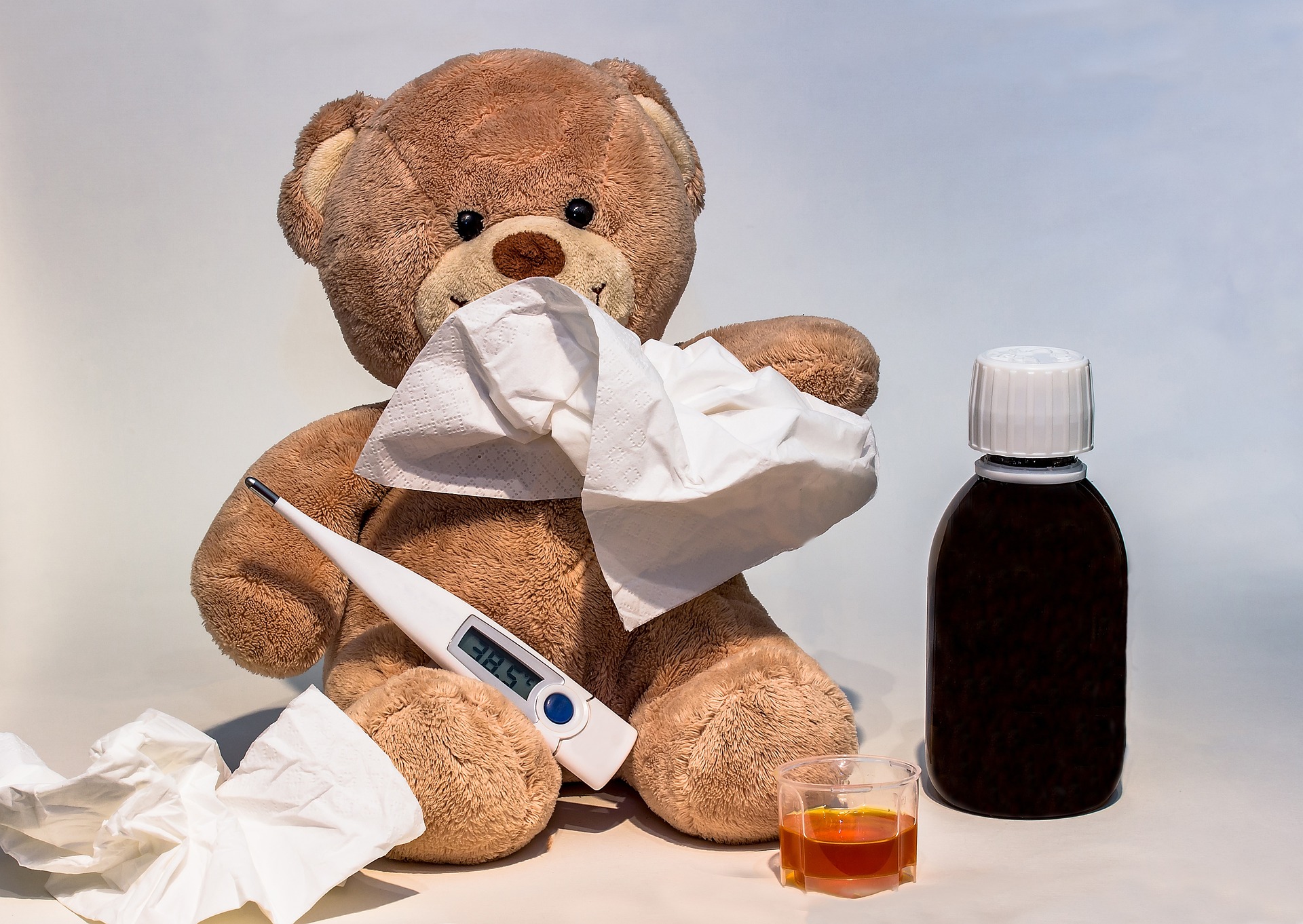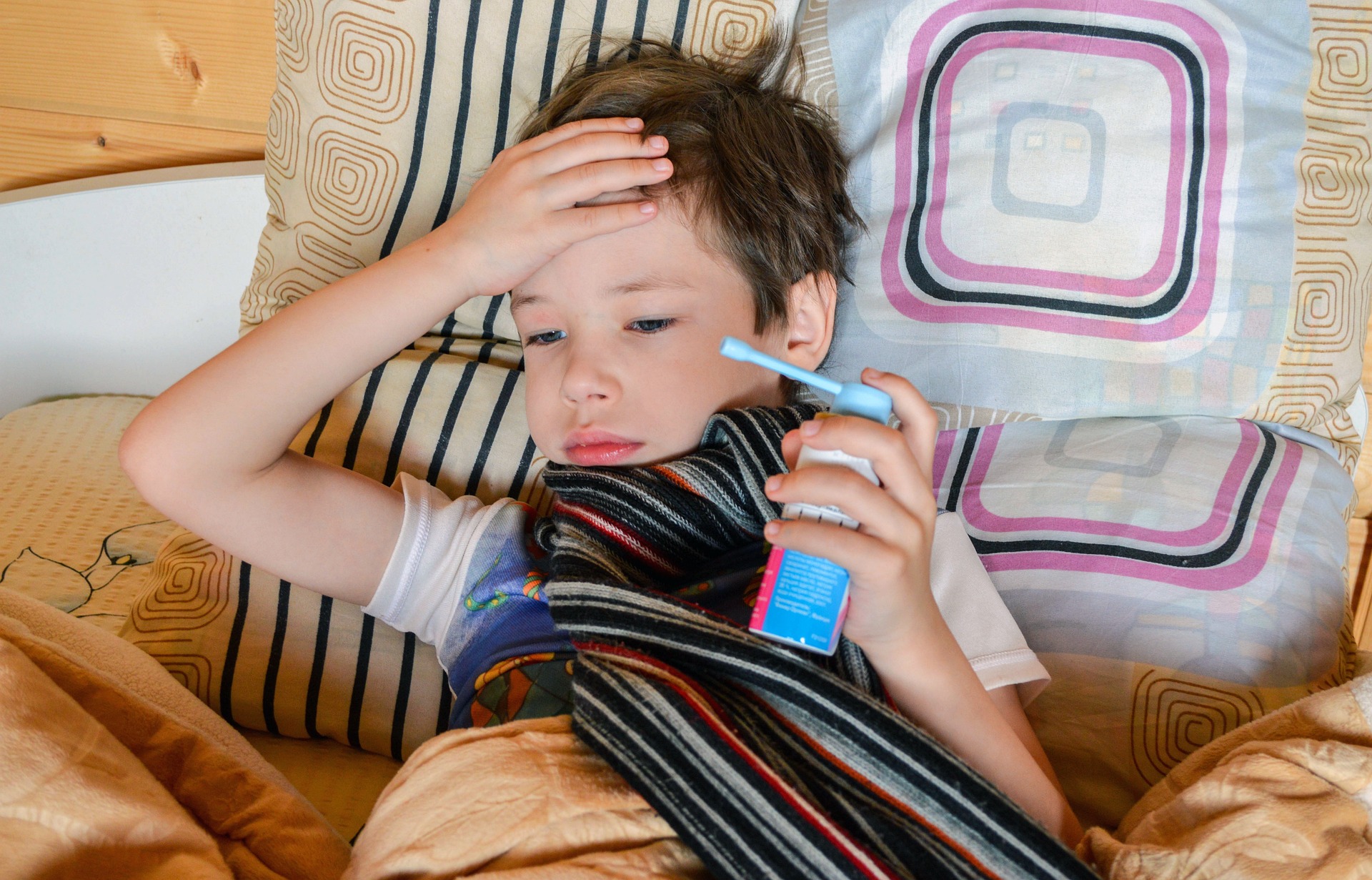Urgent Care
Diagnosis, treatment, and services for your everyday medical needs such as flu shots and lab work.

All kids get a fever at some point or another. This may sound like a bad thing, but it’s good because it can help your child’s immune system fight the infection they are struggling with. Still, it’s important to make sure your son or daughter receives the proper treatment and care necessary to make a full recovery. Whether you’re an adult or a child, fevers are brutal to deal with, but fortunately, there are plenty of ways to avoid, treat, and prevent them!
We all have been with a person who is sick and asks to feel their head, checking to see if they feel warm. This is a common method to see if someone is “burning” up and has a fever. However, for it to actually be a fever, the body’s temperature must be 100.4°F (38°C) or higher. The various and most accurate ways of measuring a temperature are rectal, armpit, ear, forehead, and mouth. Adults sometimes get a slightly different number, so the number that means a child has a fever is a little different too.
Other signs that your child might be suffering from a fever would be having chills, cold sweats, flushed skin, above-average temperature, or acting differently. Due to the discomfort, they are feeling your child may become fussy or cranky.
Typically, fevers in kids are caused by an infection. The cool thing is that a fever will help the body by stimulating the immune system to fight the infection. Healthcare experts also believe the higher the temperature, the harder it will be for germs to grow. A couple of other reasons kids may suffer from fevers would be due to immunizations, a child who is teething, and believe it or not, overdressing. Infants, more specifically newborns, may get fevers if they’re overdressed, wrapped in a blanket, or a hot environment because they don’t regulate their body temperature as well as older kids.
Treating a fever with medicine isn’t needed if a child is still playing, drinking, and doesn’t have pain. You should supply your child with medicine only when a fever causes them discomfort or prevents them from drinking fluids. It’s worth mentioning that when your child does have a fever, keep an eye on them, help them to rest, and keep offering fluids. This is so they can make up for the fluids they lose from sweating. Oral rehydration solutions like Pedialyte, are a good choice. You also can give water, soup, ice pops, and flavored gelatin. Avoid drinks with caffeine, including colas and tea, which can make dehydration worse by making kids pee more often. Let kids eat what they want (in reasonable amounts), but don’t force it if they don’t feel like eating much!
Making sure your child stays hydrated isn’t the only thing you can do. Having them wear lightweight clothing and stay covered with a light sheet or blanket can also help. It’s important to remember to keep the room at a comfortable temperature and make sure they get plenty of rest. Staying in bed all day isn’t necessary, but a sick child should take it easy.
The temperature that should trigger a call to your child’s healthcare provider depends on their age, the illness, and whether they have other symptoms. In general, call their provider if your child is younger than 3 months old with a rectal temperature of 100.4°F (38°C) or higher, 3 months or older with a temperature higher than 102.2°F (39°C), or at any age but has a health problem like cancer or sickle cell disease and has a fever.
In most cases, your child will be back to their old self within a couple of days. For older babies and kids, the way they act is more important than the reading on your thermometer or what symptoms they’re exhibiting. Don’t be alarmed if your son or daughter is a bit cranky when they have a fever. This is completely normal and should be anticipated, but if you are ever in doubt about what to do, or if your child is acting ill in a way that concerns you, the experts at Chai Care will happily take a look!
* Legal disclaimer: The content of this article and the entire Chai Care blog is for educational purposes only; it does NOT constitute medical advice and must not be considered as such. Please consult a medical professional regarding any symptoms or health concerns you or your loved ones.

Sometimes your child will be sneezing or wheezing, and you might shrug it off, believing it to be nothing more than a simple allergy. However, there is the possibility that your son or daughter may have a health issue – asthma. This can cause bothersome daily symptoms that interfere with play, sports, school, and sleep, making unmanaged asthma dangerous. Unfortunately, childhood asthma can’t be cured, and symptoms can continue into adulthood, but with the right treatment and by staying informed, your child can keep their symptoms under control and prevent damage to growing lungs.
Asthma is a chronic lung disease. It affects your airways and the tubes that carry air in and out of your lungs. When you have asthma, your airways can become inflamed and narrowed. This can cause wheezing, coughing, and tightness in your chest. When these symptoms get worse than usual, it is called an asthma attack or flare-up.
Typically, asthma starts during childhood, usually before the age of 5. Asthma is something many children suffer from and is actually the most common chronic disease in childhood. Depending on the severity of their asthma, it can cause children to miss school and even end up in the hospital.
Even though there are many different variables that may cause a child to suffer from asthma, a few of the most popular reasons would be being exposed to secondhand smoke when their mother is pregnant with them, genetics, and family history. Children are more likely to have asthma if one of their parents has it, especially if it’s the mother, or having other diseases or conditions such as obesity and allergies.
The most common symptoms of asthma are frequent coughing that worsens when your child has a viral infection, occurs while your child is asleep, or is triggered by exercise or cold air, a whistling or wheezing sound when breathing out, shortness of breath, chest congestion or tightness, and rapid breathing. It’s important to mention that your child may experience other symptoms that are disguised as something different and if these issues don’t seem to be going away, contact their healthcare provider.
It can be tricky to diagnose asthma in children, especially if they are toddlers. Asthma has similar symptoms as other childhood conditions and some children may not demonstrate symptoms very often, so it may seem like they are having respiratory infections instead. However, if your healthcare provider were to test your child for asthma they would do a physical exam, check your child’s medical history, take a chest X-ray, and do lung function tests. If you have a young child who cannot do lung function tests, their healthcare provider may suggest doing a trial of asthma medicines. This involves giving your child the recommended medicines for several weeks to see whether the symptoms get better.
Depending on the severity of your child’s asthma their treatment will vary. There is also a chance their allergist may prescribe them two different medications. The first is quick relief. All children with asthma need quick-relief medicine to treat coughing, wheezing, shortness of breath, or an asthma attack. Your child should always have this medicine with them (typically an inhaler) and use it at the first sign of symptoms. The second is preventative controllers. Many children with asthma also need to take a controller daily to prevent asthma symptoms and attacks. Your child may need a controller if they are using quick-relief medication too often or frequently need oral corticosteroids such as prednisone for asthma attacks.
It’s best to take your child to their healthcare provider if you see any signs of asthma because early treatment will help control their symptoms and possibly prevent asthma attacks. If you notice coughing that is constant, intermittent, or seems linked to physical activity, wheezing or whistling sounds when your child breathes out, shortness of breath or rapid breathing, complaints of chest tightness, and repeated episodes of suspected bronchitis or pneumonia take your son or daughter to their provider for proper testing. If your child is diagnosed with asthma, creating an asthma plan can help you, family and friends monitor their symptoms and know what to do if an asthma attack occurs.
In severe cases, you might see your child’s chest and sides pulling inward as he or she tries to breathe. They might also have an increased heartbeat, sweating, and chest pain. Seek emergency care if your child must stop in midsentence to catch his or her breath, is using abdominal muscles to breathe, or has widened nostrils when breathing in. Even if your son or daughter hasn’t been diagnosed with asthma, seek medical attention if he or she has trouble breathing. Although episodes of asthma vary in seriousness, asthma attacks can start with coughing, which progresses to wheezing and labored breathing.
The best way to prevent an asthma attack is with careful planning and avoiding asthma triggers such as allergens and irritants that trigger asthma symptoms. Exposure to tobacco smoke during infancy is a strong risk factor for childhood asthma, as well as a common trigger of asthma attacks. It is also important to encourage your child to be active. If their asthma is well-controlled, regular physical activity can help the lungs to work more efficiently. Lastly, urge a proactive lifestyle. Being overweight can worsen asthma symptoms, and it puts your child at risk of other health problems.
Asthma is a tricky illness because, for some, it’s more serious than it is for others, and if your son or daughter is one of the lucky ones who only have minor issues, they can potentially evolve into more serious problems later in life. It is your duty as a parent to stay on top of it so your child can learn and adapt to any potential new symptoms, but not to worry, the staff at Chai Care will always be here to help your child with any everyday health issue that they find themselves facing!
* Legal disclaimer: The content of this article and the entire Chai Care blog is for educational purposes only; it does NOT constitute medical advice and must not be considered as such. Please consult a medical professional regarding any symptoms or health concerns you or your loved ones.